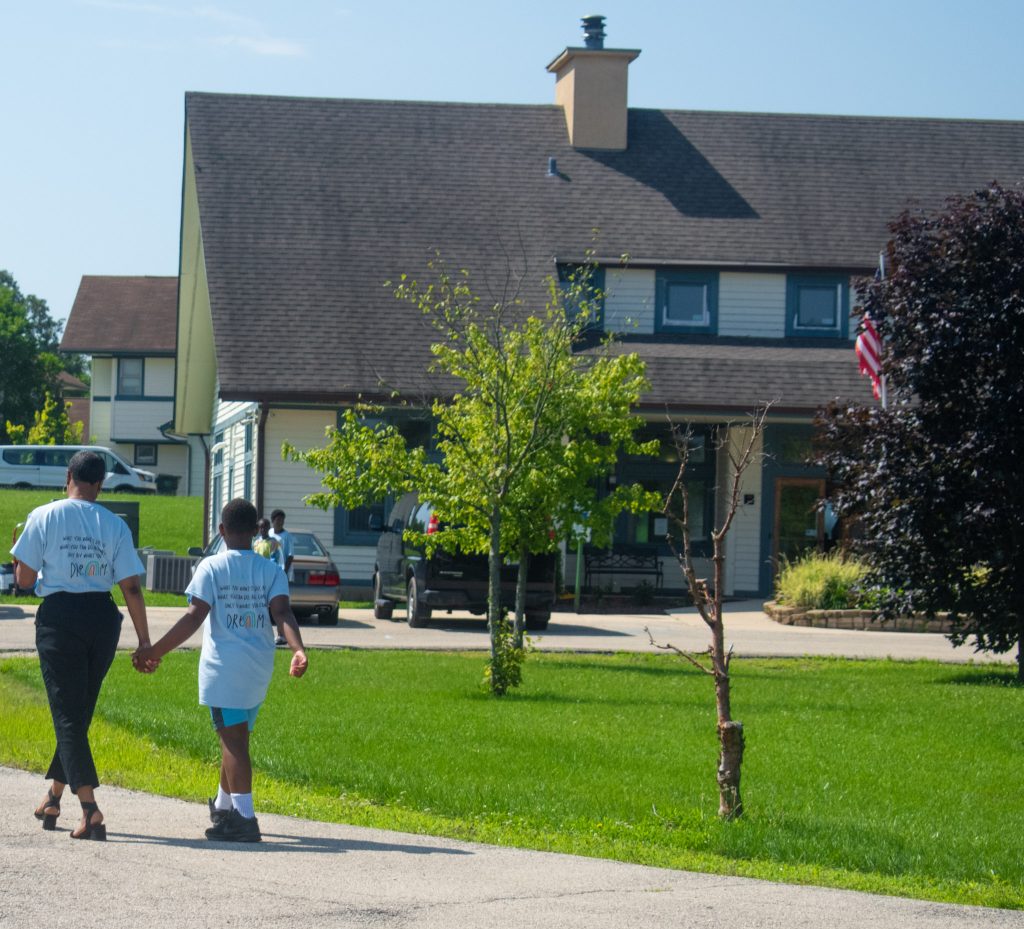
Communication is a cornerstone of any relationship. Effective communication cultivates trust and strengthens the bond between people. It helps people connect, enables conflict resolution through open and honest discussions, and encourages mutual respect and appreciation.
Effective communication between foster parents and children and youth in care is crucial to build trust and develop a nurturing environment. Foster care can be an emotionally difficult situation for children who have been removed from their homes. Developing positive relationships is essential for stability and support as a foster parent. Continue reading to learn about powerful and practical strategies to connect with children and youth in care.
Strategies to Build Trust
- Create a Welcoming Environment
First impressions matter. Creating a welcoming and safe environment is vital. One way to accomplish this is by dedicating a personal space for the child or youth and involving them in setting up that space.
- Establish Consistency and Routine
Consistency and routine provide a sense of security. Establishing regular meal times, bedtime routines, and consistent rules can help children and youth feel more secure and grounded.
- Meet Them Where They Are Emotionally
Children enter foster care from various backgrounds. Many have experienced trauma and uncertainty. Be prepared for possible:
- Mistrust in adults
- Anxiety, depression, or anger
- Developmental delays
- Attachment issues
Don’t take reactions personally. Focus on making children feel valued and secure. Building trust takes time and consistency.
- Discover Their Interests
Take time to learn each child’s interests, strengths, and goals. Pay attention as they share about:
- Favorite subjects or activities
- Hopes and talents
- Cultural background
Engaging them in their passions, whether art, sports, music, or reading favorite books together, is an easy way to bond.
- Encourage Open Communication
Create an environment where children know it’s safe to share feelings or ask questions. Strategies include:
- Shared activities to put them at ease
- Playing games that encourage conversation
- Regular check-ins to build trust
Let them guide chats. If they want to refrain from talking, convey support through listening. Many children and youth in care identify wanting an adult who listens without judgment as one of their most important needs.
Effective Communication Techniques
- Active Listening
Listening is essential to communication, ensuring both parties feel heard and valued. Good communication is about conveying information and connecting with others on a deeper level, nurturing the relationship, and promoting a harmonious coexistence.
Active listening involves giving full attention to the child, acknowledging their feelings, and responding appropriately.
- Age-Appropriate Communication
Adapting your communication style to suit the age and understanding of the child is essential. Using age-appropriate language and methods can make a significant difference.
Educational and Personal Growth Support
- Educational Support
Offering support with schoolwork and educational activities can significantly impact a child’s confidence and academic performance.
- Encouraging Extracurricular Activities
Participation in sports, arts, or other extracurricular activities can help children develop new skills and build self-esteem.
Therapeutic Activities
- Play Therapy
Play therapy can be an effective tool in helping children express themselves and process their experiences.
- Art and Creative Expression
Visual art, music, and other forms of creative expression can provide an outlet for emotions and facilitate healing.
Navigating Challenges
- Dealing with Behavioral Issues
It’s crucial to understand the root cause of behavioral issues and address them with patience and professional support.
- Emotional Support and Counseling
Providing emotional support and, if necessary, professional counseling can help children deal with trauma and adjust to new environments.
The One Family Illinois Advantage
Connecting with children in foster care requires patience, understanding, and a dedicated approach. By employing these strategies, foster parents and caregivers can make a significant difference in the lives of these children.
Providing access to professional support, like therapists or counselors, can give foster parents the tools and strategies needed for success. Although most traditional foster care structures provide caseworkers and therapists; they generally serve multiple foster families. The large geographic areas they cover might hamper their accessibility. The One Family Illinois model of care offers daily access to on-site caseworkers and therapists.
One Family Illinois is a unique model that places full-time, professional Foster Parents in single-family homes in one of its Villages, where up to six children, ranging in age from infants to young adults, call home.
Consider Becoming an SOS Foster Parent
If you want to become a foster parent, consider signing up with One Family Illinois. Thousands of children in Illinois are ready to be welcomed into loving foster homes. If you’re prepared to take the leap and change a child’s life, check out how to make that happen.
Change a Child’s Life Today!
If becoming a foster parent isn’t for you, there are many other ways to support foster children and other foster parents. You can support One Family Illinois with cash donations here. You can also help by participating in an One Family Illinois fundraising event or making an in-kind contribution. The generosity of donors has enabled us to provide safe, stable, loving homes for more than thirty years.